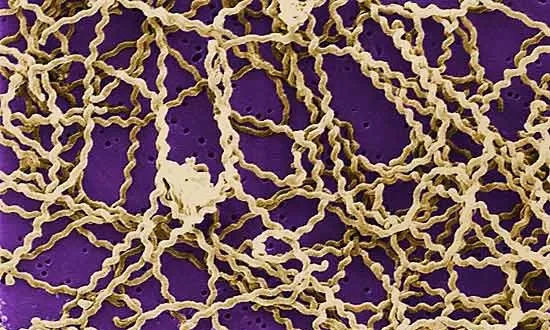Leptospira is a bacterium that causes a blood infection called Leptospirosis.
Recently I became well acquainted with this little critter and would like to share with you the experience as it may be of benefit should you be as unlucky.
It was a cold afternoon, mid-August on a lambing beat, but I was still surprised how frozen I felt despite being well wrapped up.
When I got home I was shivering and said to Jane that if I’d been wet, I think I would have been in trouble.
I spent a long half hour in a hot shower and got some soup and warm food into me before I finally came right.
The next day I felt uncharacteristically lethargic as I checked ewes and moved some cattle breaks.
I started getting a headache and aching all over and finished the lambing beat dry retching because I felt so bad.
I figured I had a virus, got home, had another hot shower and went to bed.
During the night I went from shivering fits to intense sweating where I’d be so wet I had to change my shirt and dry off with a towel.
In the early hours of the morning, I googled the symptoms of Lepto as I’d heard there was a bit about and was now certain that was what I had.
The next morning, I was able to get to see a GP and when I told him that I thought I had Lepto, instead of reminding me that I had an agricultural degree and he had a medical one, he agreed – although he listened to my lungs as the symptoms are similar to pneumonia. We are very fortunate here in Central Hawke’s Bay to have a small health centre that is able to accommodate people when they really do need help.
He sent me off with a prescription for doxycycline, which is an effective antibiotic for the infection, and paracetamol.
I’m usually stoic about pain but I took a lot of paracetamols over the next few days to try to manage the headaches, muscle pains in my back and control the bouts of shivering and sweating.
Blood and urine tests a few days later confirmed Leptospirosis. The prompt antibiotics and enforced rest were exactly what had been required, but it still took 10 days before I was able to return to light duties.
I’ve since heard stories from other farmers who didn’t recognize the symptoms and struggled on trying to work, and paid the price by ending up in ICU and having to spend weeks if not months recovering.
The disease is correlated with wet conditions, so it is not surprising that in the drought year of 2021 there were just five notified cases in Hawke’s Bay. Then the very wet year last year saw a tripling of the disease to 15, and the two cyclones and subsequent waterlogged farms have seen 35 cases so far this year. It’s a notifiable disease but these figures are only those cases that were recognised and don’t include those who weren’t diagnosed.
Given it has dried out recently, the risk of contracting the disease will have diminished – but it has not gone away, as infected animals will still be shedding the bug in their urine.
That is how I likely caught it – from lambing a ewe without wearing gloves.
I should have known better as the property where I was doing the lambing beats had an annoying trickle of abortions, with those ewes looking hard and unwell.
Cleverer farmers than me would have been using gloves and washing their hands with disinfectant and soap and taking care not to get any water or fluids in their eyes, which was easier said than done given how wet it was this winter.
Leptospirosis causes a million cases in humans worldwide and kills between 5 to 10% if medical attention is not available.
It’s a disease to be respected and avoided at all costs.
Take it from me.
• This PSA from Steve is a one-off and not, unfortunately, the return of regular dispatches From the Ridge – Ed










